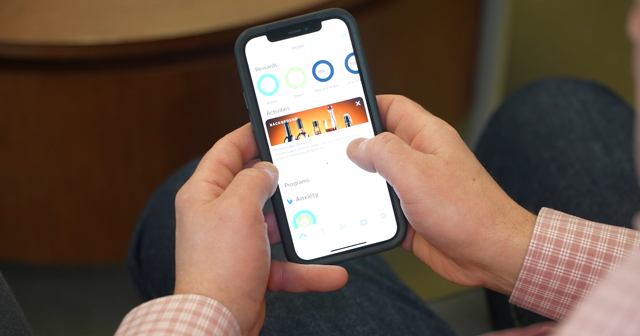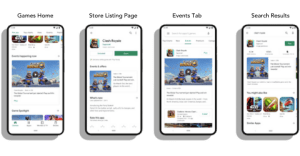Substance abuse is a growing problem, and it’s one that many people either don’t address or want support that extends beyond a therapist’s office or peer group meeting.
That’s the idea behind New Ocean Health Solutions’ newest lifestyle app, Substance Use Management. The Conshohocken-based company says the program is designed to support adults facing substance use disorders and their families by providing educational content and activities that help manage substance use and encourage a healthy lifestyle.
MORE: Caught a cold or the flu? Don’t take too much Tylenol, FDA warns
The program works as part of The Voyage, New Ocean’s health and lifestyle management app. Designed in consultation with a substance abuse counselor, it’s being marketed to employers, health plans and health systems.
Mobile, digital solutions provide “an environment for support” that helps people manage stress, anxiety and a range of behaviors that often accompany substance abuse, said Mike Musci, chief medical officer for New Ocean. “There’s really good evidence” that these apps work, he said.
New Ocean’s app provides management tools such as strategies for controlling sugar cravings, a common problem for people going through substance abuse, as well as tips on ways to de-stress and improve overall health, Musci said.
Family members can get guidance on how to help someone struggling with substance abuse, sometimes “even before they decide to get help for themselves,” Musci said.
While not designed as a stand-alone therapy, Substance Use Management can be a “private, convenient way” for someone who thinks their substance use might be getting out of hand and wants to explore ways to control it, said Marnie Hall, New Ocean’s chief marketing and strategy officer.
New Ocean rolled out the tool at the start of the year, and “very preliminary statistics” are encouraging, Musci said. “Seventy to 80 people since the first of the year have enrolled in the program,” he said. “That’s a lot of people who are starting to address their issues with substance abuse.”
One of the program’s early boosters is Dr. Patrick McElwaine, program director for Holy Family University’s Masters of Counseling Psychology program and director of the university’s Collegiate Recovery Program. New Ocean asked him to review the product, and he found it superior to other recovery-based apps because of the way it works with The Voyage to address other aspects of mental, physical, and emotional health.
“There’s so much here that’s a holistic view of really helping yourself,” he said.
“This is going to come in really handy for individuals in recovery who are just starting” the recovery journey, McElwaine said. It could also be useful to therapists and psychiatrists, who may want to include it as part of an “action plan” for patients to use outside the office, he said.
“It’s pretty unique” among apps aimed at controlling substance use, said McElwaine, who has been in recovery himself for 15 years. “I’ve tried a lot of them,” he said.
“Things like physical activity, sleep and stress management are “all connected to somebody’s substance use,” he said. “If that’s not being really focused on, there’s a likelihood that they could revert back to their use.”
The Voyage “doesn’t replace therapy, but it could be beneficial to students” who might think their drinking, for example, is getting out of hand, McElwaine said. “Counseling centers are really overwhelmed at universities,” he said.
App-based behavioral management programs “may or may not have been tested, as there are no requirements that companies conduct randomized trials before putting their products on the market,” said Simon Goldberg, associate professor at the University of Wisconsin-Madison School of Education’s counseling psychology department. “But there is evidence that mental health apps in general can be effective, particularly if used in combination with in-person therapy,” he said.
“There’s no reason to think people couldn’t benefit from these sorts of things,” said Goldberg, who hasn’t studied New Ocean’s app specifically. “Bibliotherapy” — using reading as therapy — also has been used to improve mental health, he noted.
The University of Wisconsin-Madison’s Center for Healthy Minds and its partner, nonprofit Healthy Minds Innovations, are studying a behavioral health app that uses meditation as a way of reducing stress and improving mental well-being, and “we’re seeing clear evidence for beneficial effects that are sustained up to five months later in randomized trials that we’re running,” he said.
“With some of the substances, it can be harder to change behavior,” Goldberg said. “We know opioid use disorder can be a pretty serious disorder, and in some cases it might take more than the availability of an app to really move the needle.”
A study, he noted, found that an app aimed at supporting people with opioid addiction didn’t have a significant effect on abstinence rates, though the researchers said it could benefit some people.
“One of the things I like to tell people is, apps are generally safe to experiment with, and if it works for you, that’s great,” he said.




